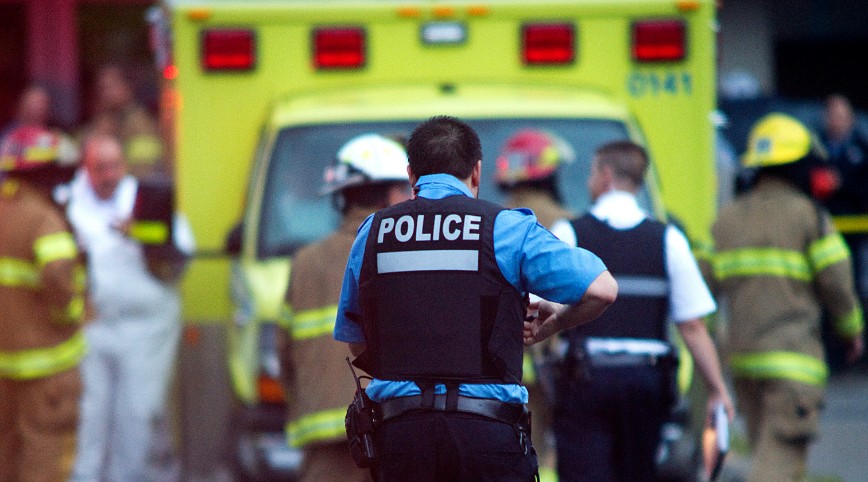March 7th, 2024 | Alex
Mastering Effective Event Crisis Management with GALA PR
If you want to run a successful live event then it’s vitally important that you are also aware of event crisis management in case anything happens.
When it comes to event management, many different reasons can cause an event to have a crisis.
That is why event crisis management is such a critical aspect when it comes to running a live event.
You are then prepared should your event fall victim to a crisis.
In this article, we will take a look at what effective event crisis management is when it comes to live events.
What is Crisis Management in Event Management?
Crisis management in event management refers to the efforts employed to effectively handle and navigate unforeseen and potentially disruptive incidents that may jeopardise your event.
It involves a proactive approach to identifying potential risks through thorough risk assessments and developing detailed crisis management plans.
This planning encompasses various aspects such as:
- Communication protocols.
- Emergency services coordination.
- Evacuation planning.
- Medical support.
- Technology utilisation.
The goal of crisis management in event management is not only to respond to crises as they arise but also to mitigate their impact through proactive measures.
This helps ensure the safety and well-being of attendees while safeguarding your reputation.

Event Crisis Management for Live Events
Here are some key steps to implement an effective event crisis management plan for live events:
Risk Assessment and Planning
Risk assessment and planning are essential components of event crisis management for live events.
They provide a structured and proactive approach to identifying, understanding, and mitigating potential threats and challenges.
Conducting a thorough risk assessment helps you identify a wide range of potential risks and hazards that could impact the event.
This includes:
- Natural disasters.
- Security threats.
- Medical emergencies.
- Technical failures.
- Any other unforeseen circumstances.
By identifying potential risks in advance, you can proactively develop strategies and contingency plans to address these risks.
This proactive approach ensures that there is a pre-established response plan in place, minimising the chaos and confusion during an actual crisis.
Communication Plan
A communication plan is crucial in event crisis management for live events because effective and timely communication is vital for managing and mitigating the impact of crises.
It ensures that information is communicated clearly and consistently across all channels.
Consistency helps avoid confusion among event staff, attendees, and external stakeholders, providing a unified message during a crisis.

Quick and accurate communication helps keep everyone informed and allows for a more efficient response to the situation.
The plan designates specific individuals or teams as official spokespersons.
This helps prevent misinformation and ensures that only authorised and trained individuals communicate with the media, attendees and other stakeholders.
Designated spokespersons are crucial for maintaining a consistent and controlled message.
The communication plan addresses internal communication among event staff, volunteers, and other personnel.
Clear communication internally is vital for ensuring that everyone is aware of the crisis, understands their roles and responsibilities, and can act in a coordinated manner.
Training and Drills
Training provides event staff and stakeholders with a thorough understanding of crisis management procedures.
Through regular drills, people become familiar with their roles and responsibilities, ensuring a more organised and coordinated response when a real crisis occurs.
Training sessions and drills allow staff to develop the necessary skills to handle various crisis scenarios.
This includes communication skills, decision-making abilities, first aid knowledge, and the capacity to implement evacuation procedures.
Skills acquired through training are invaluable during high-pressure situations.
Regular drills help improve response times by enabling staff to practise and streamline their actions.
Crisis situations often require coordinated efforts from multiple individuals and teams.
Training and drills provide an opportunity for different departments to practise working together seamlessly.
Emergency Services Coordination
Coordinating with emergency services ensures a rapid and efficient response to crises.
In the event of a medical emergency, security threat, or natural disaster, quick access to professional emergency responders can significantly minimise the impact and increase the chances of a positive outcome.
Emergency services, including paramedics, firefighters, and law enforcement, possess specialised training and expertise in handling various crisis situations.
Their involvement is crucial for providing medical assistance, managing security threats, and addressing other emergencies that may occur during live events.
Coordinating with emergency services allows you to align your resources with professional services.
This includes ensuring that medical facilities are well-equipped, access points are known to emergency responders, and any necessary equipment or personnel are available for a comprehensive crisis response.
In major crises, a unified command structure involving you and emergency services is essential.
This structure ensures that decisions are made collectively and that resources are deployed efficiently.
This collaboration helps avoid confusion and enhances the overall effectiveness of the response.

Evacuation Planning
The primary goal of evacuation planning is to ensure the safety of event attendees.
In the event of emergencies or other crises, a well-executed evacuation plan provides a structured and organised approach to moving people away from potential danger.
An evacuation plan helps minimise panic and chaos among attendees.
Clear and well-marked evacuation routes, designated assembly points and organised procedures contribute to a sense of order, reducing the risk of injuries or accidents during the evacuation process.
A well-thought-out evacuation plan allows for the efficient use of resources, including personnel and equipment.
It ensures that staff members are deployed strategically to guide and assist attendees and that emergency services can focus on critical tasks rather than managing chaotic evacuation scenarios.
Technology and Monitoring
Technology enables real-time monitoring of various aspects of an event, including crowd movements, weather conditions, and security surveillance.
This real-time data is essential for maintaining situational awareness and quickly identifying potential issues or emerging crises.
Technology provides diverse communication platforms for you to relay information to attendees, staff, and emergency services.
This includes mass notification systems, mobile apps, and social media channels, allowing for swift and widespread dissemination of critical information during a crisis.
With the use of remote monitoring technologies, you and emergency services can assess situations without physically being on-site.
This capability is particularly valuable for events held in large or complex venues, enabling a more rapid and informed response to unfolding events.
Public Relations and Reputation Management
Effective PR and reputation management are essential for preserving public trust.
In the face of a crisis, maintaining open and transparent communication helps reassure attendees, sponsors, and the public that you are actively addressing the situation and prioritising safety.
A successful PR strategy can mitigate negative public perception during a crisis.

By promptly addressing concerns, providing accurate information, and demonstrating a commitment to resolving issues, you can influence how the public perceives the situation.
PR professionals play a vital role in managing media relations during a crisis.
We can act as spokespersons, liaise with journalists, and provide timely and accurate information to the media.
Effectively managing media coverage helps control the narrative and prevent the spread of misinformation.
A comprehensive crisis communication plan, part of the PR strategy, ensures that you are well-prepared to communicate during a crisis.
This includes having designated spokespersons, clear messaging, and protocols for timely and consistent communication across various channels.
Event Crisis Management with Gala PR
This full guide to crisis management should be able to help you navigate through any sort of crisis you may face during a live event.
Beyond crisis management, PR plays a role in long-term reputation building.
A positive reputation is an asset that can contribute to the success of future events.
At Gala PR we help shape a positive narrative and maintain credibility in the eyes of the public whether there is a crisis that needs to be managed or not.
For more information on how we can help promote your live event using innovative PR strategies, please reach out to us.